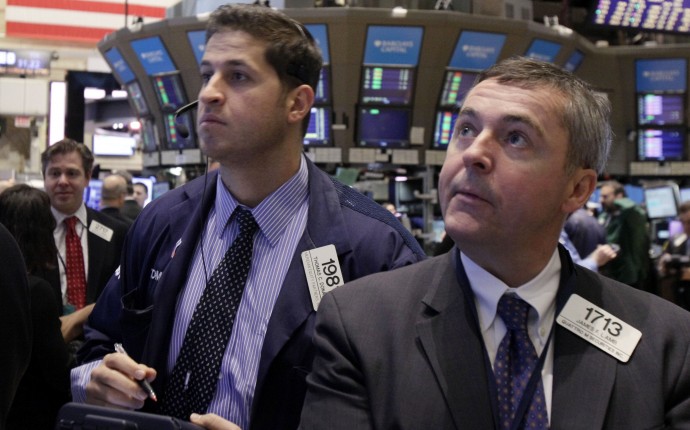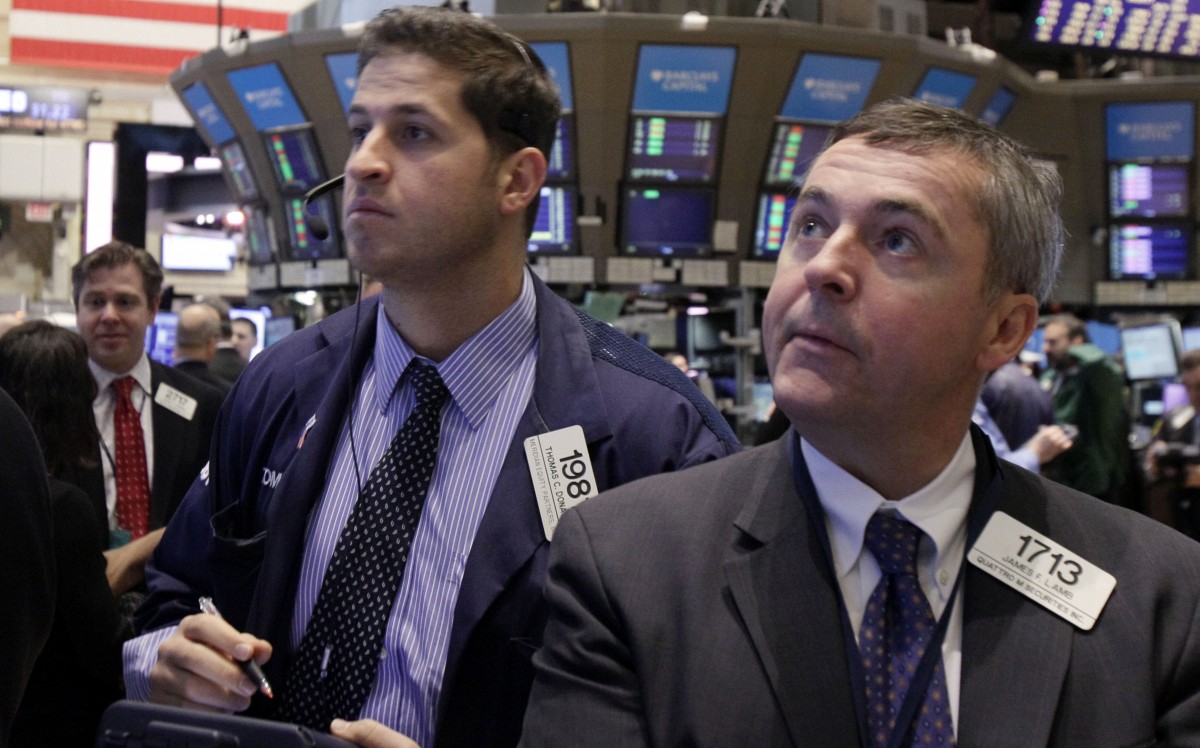
(MintPress) – A new study commissioned by New York public relations firm Makovsky reveals that over half of Wall Street company executives believe that the Occupy movement had impacted their business and that 96 percent of executives believe their firm was responsible for negative perceptions of Wall Street. The findings reveal the impact of a movement that, at only six months old, has resonated with people on a global scale and been the subject of police action, evictions and expanding goals.
The survey also detailed what executives feel is the culprit of negative sentiment toward the industry and their attitudes toward financial regulations. Eighty-one percent of those surveyed said they had concern about the public’s reaction to executive financial compensation. Another 74 percent believed that increased regulations on the industry would lend itself to creating a better public image for companies.
Scott Tagney, executive vice president and head of financial services at Makovsky, said public perception a company has evolved into a top priority for many firms.
“There has been a shift in priority from recovering and stabilizing to focusing on customer satisfaction, employee communications and improving public perception,” Tagney said of the study. “Our study reveals that companies are in transition, and this new strategy involves both external and internal integrated communications efforts.”
While a majority of executives surveyed said they had been affected by the Occupy movement, only 38 percent said they were surprised by its effects. With a hotly-contested election season in full swing and Election Day eight months away, Tagney said Wall Street will not see the impact of Occupy fade in any way.
“With the six-month anniversary of the movement sparking a resurgence, the consensus is that Occupy Wall Street is not going away anytime soon, and financial services executives need to be better prepared to address this issue moving forward,” Tagney said.
Putting in the work
As the Occupy Wall Street movement hits a six month benchmark and metro areas across the country continue to see Occupy movements make their mark, the activism has not come without its consequences. The movement has brought to light instances of police violence toward the group and the arrests of often peaceful protesters.
Last weekend, protesters marched in New York against the treatment of other demonstrators two weeks ago after 73 members of the movement were arrested in what witnesses called excessively violent. The group called for a critique of New York Police Department (NYPD) tactics and the resignation of NYPD commissioner Ray Kelly.
Arrests have become a commonality of the Occupy movement, despite the groups overwhelming usage of peaceful tactics. Many of the arrests stem from staying in parks past curfews and, in one instance, an Occupier was arrested for throwing flower petals in the California’s state capitol. Another Occupier in Orlando was arrested three times for using sidewalk chalk. As of March 24, a rough estimate of the number of Occupy protesters arrested stands at 6,837, according to Occupy Arrests.
With reports of arrests inundating mainstream media, the number of Americans willing to identify themselves as a supporter of the movement is relatively low. Gallup’s most recent poll looking into the support of the Occupy movement, taken late last year, showed 24 percent of Americans identified themselves as a supporter while 19 percent opposed the group. Fifty-three percent said they neither supported nor opposed the movement.
International support
On a global scale, the Occupy movement means more, if only because it mimics a mirror image of similar uprisings and revolutions seen in the Middle East. Shortly after Occupy gained steam on Wall Street, an Iranian military commander likened the movement to the Arab Spring, which was responsible for toppling oppressive regimes in countries like Egypt, Libya and Yemen.
Gen. Masoud Jazayeri of Iran’s Revolutionary Guard said the Occupy movement has the potential to rewrite capitalism in America during a time when the leadership in America is not doing enough to close the wealth gap between its citizens.
“The failure of the U.S. president to resolve the Wall Street crisis will turn this economic movement into a political and social movement protesting the very structure of the U.S. government,” Jazayeri said.
Last October, a group of Egyptians – who saw the power of protest overthrow former president Hosni Mubarak – demonstrated in a gesture of solidarity with Occupy on the grounds of the U.S. Embassy in Cairo. The group wanted to draw attention and parallels to the two revolutions after a violent police crackdown on the Occupy group in Oakland that many protesters injured and one with a fractured skull.
“We are now in many ways involved in the same struggle,” the protesters wrote. “What most pundits call ‘the Arab spring’ has its roots in the demonstrations, riots, strikes and occupations taking place all around the world, its foundations lie in years-long struggles by people and popular movements.”
And the international support for and by Occupy has been mutual, particularly for Greece during its battle of austerity measures in a country where 21 percent live in poverty and 60 percent fear they could be on the brink of being poor.
In February, Occupy sects across the country marched in solidarity with Greece for the International Day of Action. Demonstrators flooded the streets in America’s largest cities; from San Francisco, to New York and Atlanta.
“We are all Greeks! When one people is attacked, all people are attacked,” a call to action said.
While the winter months may have minimized the visibility of Occupy movements, the groups have promised an “America Spring” that will renew mass protests and a new strategy by the organization.
According to MSN Money, the group is planning a “marked escalation of surprise, playful, precision disruptions, rush-hour flash mobs, bank occupations, ‘occupy squads’ and edgy theatrics.”
Source: MintPress


